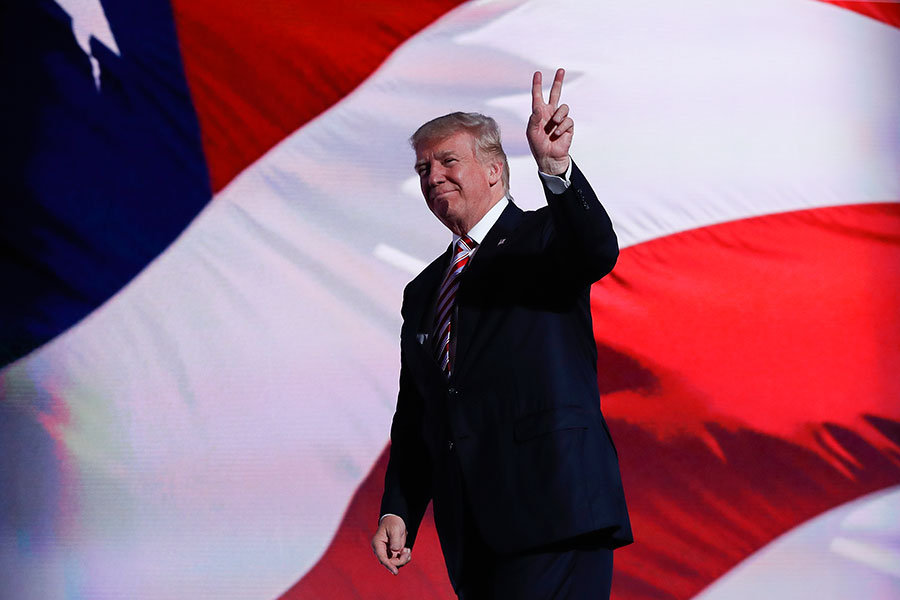On Protecting Democracy & Human Rights in the Trump Era

In our beautiful and diverse country, our bonds have been formed through the struggle to realize our shared ideals for all people. Through this struggle we have formed one people out of many. But after this bitter election, we must again learn to answer the question: “who are our people?” Too many of us woke up on November 9th 2016 without a clear answer.
As progressives committed to a human rights vision, we know we are a country divided and distressed, with brutal injustice defining the daily lives of an increasing number of communities. The powerful letter from 100 Women of Color Leaders rightly reminds us that “our work did not start and does not end at the ballot box.” Our current crisis has been long coming. But we must still pause and take stock of how this election threatens our national identity and existence as a country that defines itself through the ideals of human rights and democracy.
If we don’t stand for something, we will fall for anything—and if we don’t stand by each other, we will find ourselves frighteningly alone in an increasingly hostile world. We must stand by those communities whose human rights and dignity are at the greatest risk and been explicitly threatened, our undocumented and Muslim communities. But also know we must be ready to support all impoverished and marginalized communities that will come under fire. This includes fighting for the economic and social rights of poor White working class communities, which too have been denied their economic and social rights, while we openly confront White supremacy, fascism, classism, xenophobia, Islamophobia and misogyny anywhere we see it.
But we must understand and act knowing these are not individual battles, but one larger effort under which we must unite for human dignity and equality. When we answer the question “who are our people,” our belief and commitment to our common humanity and the human rights of all of us requires us to bridge the current toxic divides. The deep racial divide that has broken out of every pore of our aching country, partly reflected in the split between our rural and urban communities, is not an immutable feature of the American people.
Our social and economic structures, shaped by a history of vicious racism and a classism designed to create economic losers and winners in a zero sum game, produced the hate, the scapegoating, and the lack of faith in our democratic institutions we suffer from today. If these structures have produced the threats to dismantle the limited progress on healthcare, to rush headlong into climate crisis without even a pretense of mitigation, to expand militarization and criminalization of our communities, among the parade of horrible threats on our horizon, then we must redouble our commitment to transforming these structures together.
It is impossible to deny that our elite political class has now brought our country to the brink of potential disaster, making it difficult to imagine that this very same class of leaders will find the needed solutions.
Our progressive movements and sectors must instead put our faith in frontline communities living these challenges day in and day out, to provide the leadership towards a better future. We must demonstrate that we will never give up on true democracy and human rights. We must intensify our organizing of people across the country, and recognize the importance of an honest and more visionary discourse for America’s future.
We can no longer be tepid in our calls for change and must continue our support for a future through radically loving agendas of all our movements, from Vision for Black Lives, to the agenda for all those who fought for Sanders, to the vision of our immigrant communities. In this moment, we must all embrace a larger human rights agenda.
This may be our last wake up call to build a more authentic democracy and a human rights vision that recognizes the centrality of economic and social rights for all people. We echo our ally organization, the Center for Constitutional Rights, “resistance is our civic duty.” Despite the overwhelming backlash we saw in this election against positive change, we must continue on the ground efforts, like those of our partners, who work tirelessly to heal our racial divide and our economic wounds.
Universal respect for all human rights of all people is the deeper vision of our country that until now has coursed under the surface of our many battles, feeding them like a thousand individual trickles and streams as they ran their own unique courses. We have to tap into that source and strength to ensure we are fully united and express our power through shared values. Only then can we create a flood of justice to wash away the anger and pain and bring into being the beloved community our movements have struggled toward for so long.
